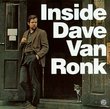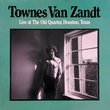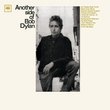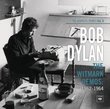| All Artists: Jackson C Frank Title: Blues Run the Game Members Wishing: 1 Total Copies: 0 Label: Sbme Castle Us Original Release Date: 1/1/2000 Re-Release Date: 10/21/2003 Genres: Folk, International Music, Pop, Rock Styles: Traditional Folk, British & Celtic Folk Number of Discs: 2 SwapaCD Credits: 2 UPC: 060768132528 |
Search - Jackson C Frank :: Blues Run the Game
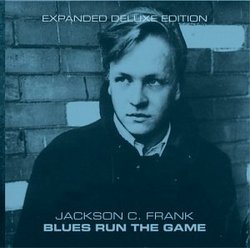 | Jackson C Frank Blues Run the Game Genres: Folk, International Music, Pop, Rock
Jackson C. Frank, Blues Run the Game |
Larger Image |
CD DetailsSynopsis
Album Description Jackson C. Frank, Blues Run the Game Similar CDs
|
CD ReviewsVirtually All of Jackson C. Frank's Recordings Steve Vrana | Aurora, NE | 06/08/2007 (5 out of 5 stars) "Until the release of Sanctuary Records TROUBADOURS OF FOLK in 2003, I was only aware of Jackson C. Frank as the composer of "Blues Run the Game." That British folk anthology included his original rendition of the song along with the traditional "Kimbie." His performances on that album led me to this 2003 reissue by Sanctuary Records of Frank's 1965 debut along with thirty-three bonus tracks. The album's liner notes reveal one of the most tragic figures of the British folk movement--perhaps in all of music. An American, Frank was born in Buffalo, New York, in 1943. While in grade school, there was a furnace explosion in the music room. Most of his classmates were killed. Frank spent seven months in the hospital recovering from his burns. The physical and psychological toll of those injuries would remain with him the rest of his life. While recuperating he learned to play guitar. In 1960 he recorded seven songs at a cost of $7 for an envisioned album he hoped to title PEACHES & CRUST. [They are among the bonus tracks (disc-2, 16-22) salvaged from a 78 rpm disc.] In the early Sixties, Frank hung out with future Steppenwolf frontman John Kay. In 1964, Frank received a $110,500 pay-out from the insurance company resulting from the fire. By 1965, Frank left for the burgeoning folk scene in England. His debut album was produced by fellow American Paul Simon in less than 3 hours. In 1967, Frank returned to the States, began working for a Woodstock newspaper and got married. By 1969, his marriage had fallen apart, his infant son died, attempts to return to music were unsuccessful. By the Eighties, Frank was in and out of mental hospitals and living on the street where a drive-by shooting cost him his left eye. [Looking at the photos in the accompanying booklet, it's hard to believe that the man in the later photos is the same person.] He returned to the studio one last time in 1994, but never completed a follow-up to his 1965 album. He died in 1999. What Sanctuary Records has done for this reissue is to gather together in one collection everything Frank ever recorded. [The only material missing are the songs he recorded for John Peel's Radio 1 show in 1968, but these tapes--if they still exist--have yet to be found.] So here's what you get: CD-1 Tracks 1-10: The original 1965 album of nine originals and one traditional song ("Kimbie"). The best known of these is "Blues Run the Game." It has been covered by Sandy Denny, Nick Drake, Bert Jansch, John Renbourn and most recently by Counting Crows. Most of the songs are moody, and introspective. The lone exception is the jaunty "Just Like Anything." But it's hard not to listen to these songs without being aware of the tragedies that followed. In the opening verse of "Dialogue," he sings "I want to be alone/I need to touch each stone/Face the grave that I have grown/I want to be alone." Tracks 11-12: The single version of "Blues Run the Game" in a slightly livelier rendition (with a second guitar--probably Al Stewart), along with the non-album b-side "Can't Get Away From My Love." Tracks 13-17: Five tracks from a 1975 studio session. Previously inlcuded as bonus tracks on an earlier reissue. Frank's guitar playing is still excellent, but his voice has taken on a heavier timbre. Tracks 18-20: Three newly discovered tracks from the same 1975 session. Track 21: Also from 1975, but at 35-seconds, it's little more than a snippet. CD-2 Tracks 1-6: These are his final studio recordings from 1994. Frank's voice has taken on a world-weary tone, but it only adds to the emotional level of these songs. Frank is still capable of creating haunting music. Tracks 7-15: These are home recordings from 1997. The quality is marginal, but they still show a man whose muse had not abandoned him. Tracks 16-22: These seven tracks were recorded when Franks was 17 and in his words "began collecting old Civil War songs with a passion." There is a lot of surface noise on these recordings, but they give us a glimpse of the artist during his formative years. For anyone with more than a casual interest in the British folk scene of the 1960's, this is required listening. HIGHLY RECOMMENDED " THE GREATEST FOLK ALBUM EVER MADE. Shlomo Sinatra | Alaska | 12/28/2007 (5 out of 5 stars) "I first heard Jackson C. Frank's classic Blues Run The Game by Simon and Garfunkel on their boxset "Old Friends". I thought it was a great song. Once I got the first issue of this album on CD, on Mooncrest, I could no longer listen to their relatively sugary treatment of it (and I LOVE Simon and Garfunkel). I could not believe the voice that came forth. Beautiful, powerful, and haunting. It gave me chills. There are simply no artists that can cover a song of his and do it proper justice; it will inevitably suffer from comparison. It's quite a shame that Simon and Garfunkel forgot about Blues Run The Game, left it off the Sounds of Silence album, for the royalties would surely have made it possible for him not to wind up homeless. Forever traumatized from the school fire from his youth, and living the most unbelieveably tragic life any artist of his caliber has lived, his songs are all infused with sadness, the true voice of trauma, with no affectations, unlike say Nick Drake. Both had great voices but Nick's was fragile and soft. Jackson's boomed forth with power. There really are no comparisons to Jackson C. Frank. I shouldn't make any more. He was INCOMPARABLE. The first ten songs on here are ALL YOU NEED. BUT, the sound is cleaned up a notch; a pop on Blues Run The Game is less audible on this version, unlike the other two issues I have. Blues Run The Game is as perfect a song as you will ever hear. It's completely true. It's all a gamble, and some of us were born to lose. "when I ain't sleeping, you know you'll find me crying" WOW! I've been there. "wherever I have gone, the blues come following down"; "maybe someday I'll wake up older, and I'll just stop all my trying". A perfect song; depressive, of course. But melancholy is real. Anything that doesn't have a BIT of sadness in it just doesn't ring true to some of us, living lives that are thrown at us without any say in the constant heartbreaks that undeservedly plague us. Don't Look Back is Jackson's protest song, with a nice tribute to Medgar Evers. Very much more upbeat sounding than the other songs on here. This one song is infused with the fighting spirit that kept Jackson C. Frank going as long as he did despite his circumstances. Kimbie is a traditional song, which the first CD I had calls "Kimble" I knew a beautiful girl named Kimble years ago. But anyway, here, Kimbie is sang with far more force than the Nick Drake demo version, which is quiet and subdued. Here, the vocals make my hairs stand on end. Yellow Walls is a fogotten classic on here. "no-one knows me in the morning no-one sees me go walking by and if I listen, why, no-one answers the winds can only echo a good-bye" This song is sacred to me. "I see you running and never moving" maybe Jackson felt that way about himself. Jackson sounds almost like Dion on Here Come The Blues--almost. It has that same quality as some of the folk-blues that Dion cut while struggling with heroin and ditching his teen-idol trappings. But once, again, Jackson's voice. And lyrics like "no bottle of pills can kill this pain"--woah! "just me, the good-time charlies, and the suicides"-- I'd say Jackson was one who wanted to be a "good-time charlie", but could neither be one OR a suicidal. At least he TRIED to live it up! He did for a while. Awesome song. Milk and Honey is a melancholy tune about the THREE seasons. No summer for Jackson here. You'd think no spring, but actually no summer makes as much sense, he probably suffered a bit from seasonal affective disorder; it's not exactly uncommon in depressed individuals. My Name Is Carnival is sort of like someone thinkng out loud; the lyrics flow like stream-of-consciousness; the lyrics by themselves don't really seem to be as clear as the others, but the tune is utterly beautiful. (even the title makes no sense). Dialogue is also extremely beautiful, tender and melancholic. A plea to be left alone. This is not the best album for those who are suffering from excruciating depression to listen to, I should mention. Just Like Anything may have been considered by Jackson to be a light-hearted 'joke', but it's not. " I know I'll never die"? That's an inspirational line, especially coming from such a seriously battered human being. You Never Wanted Me is one of the greatest kiss-off songs ever. It really gets to the core of the ending of a love, a relationship. "You never knew me at all"? BEAUTIFUL!!! Jackson C. Frank was the GREATEST, and now no-one can hurt him anymore. The Blues Run The Game single is the best bonus on this collection, but it's simply not NEARLY as good as the album version. Did I mention, he recorded the album behind a screen? Paul Simon used the royalties from his first album to produce this. He told Jackson he needed to 'test' for levels, and thus the most brilliant folk album was made...behind a screen. It probably couldn't have been done as well any other way. The flipside, Can't Get Away From My Love, is not that great. The demos that follow on disc one are fair but can't compare, sorry, no WAY. Disc two? I wish I could rave about it, but it holds less for me than the '75 demos. I like Goodbye To My Loving You, but otherwise, it holds very little for me. The booklet is fantastic, the sound quality of the MAIN part--the album, the first ten songs --which should possibly be issued just as they are, as they are perfect, is in SLIGHTLY better quality here. More is NOT necessarily better. A shame that Jackson C. Frank is still unknown, for the most part; you will never hear him being used as a commodity as Nick Drake has posthumously become. There is no (supposed) suicidal angle to sell to a sick society that romanticises the act whilst condemning it for lest society be seen as it truly is; hypocritical and sick. The tragedies that Jackson C. Frank suffered can't be commercialized or romantisized, even by our heartless media society. Poor Jackson lived the most tragic life. I hope and can only wish his soul is at peace now. and that people now appreciate his magnificent music he created at his peak, for it will never be topped by anyone. If you don't have this, get it, in any version; all you need are the first ten tracks here, unless you want a further insight into where his music took him; but you'll wind up listening to it only once or twice and then skipping past it--or rather, ignoring it to get to the treasure at the beginning. Paul Simon, where the hell where you when Jackson needed you? This has some songs that are not far from the Simon and Garfunkel sound, but Jackson's voice and lyrics are even further into a visceral melancholy, a disturbance. A MASTERPIECE; the greatest folk album EVER. " Portrait S. Morris-White | Ernest Goes To, Sea of Tranquility | 02/08/2008 (5 out of 5 stars) "Jackson's work is as storied as his face. So if his visage is even remotely intriguing, I urge you to add this to your cart.
It's incredible the beautiful and heartbreaking things a man can produce against tremendous, seemingly insurmountable odds. But don't fret; this is no Lifetime movie. This is a bare nerve. This is a removal of stitches just to show you the depth of the wound. In much the same way Van Morrison's Astral Weeks and Veedon Fleece illustrate a place we have all encountered, Jackson C Frank's discography returns us to a place we didn't know anyone else had visited. Naked and intense. But also highly recommended." |

 Track Listings (21) - Disc #1
Track Listings (21) - Disc #1